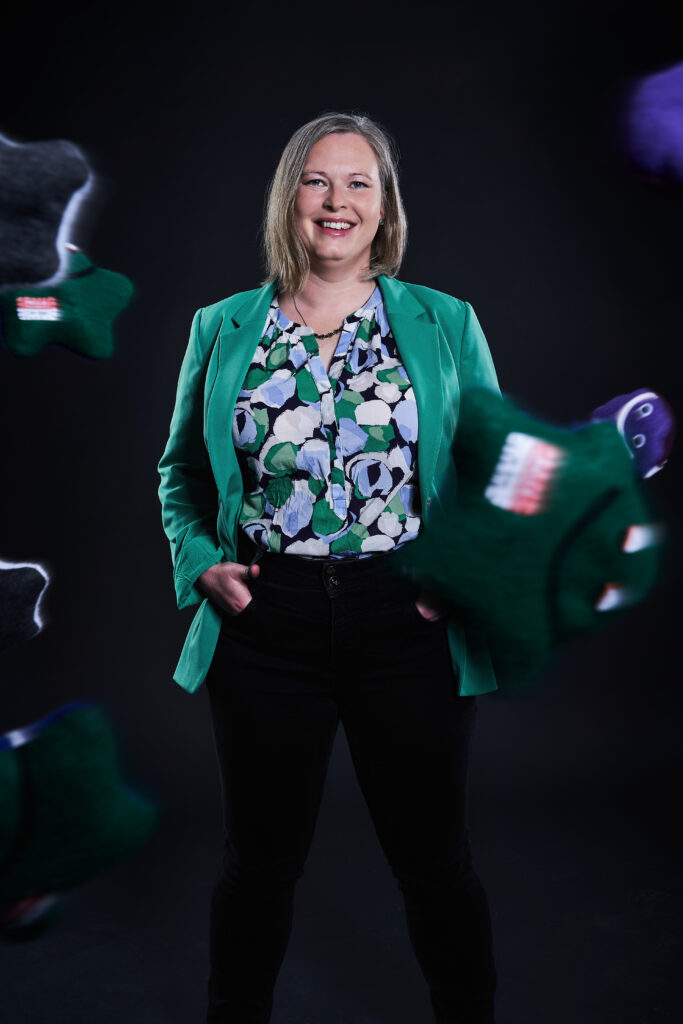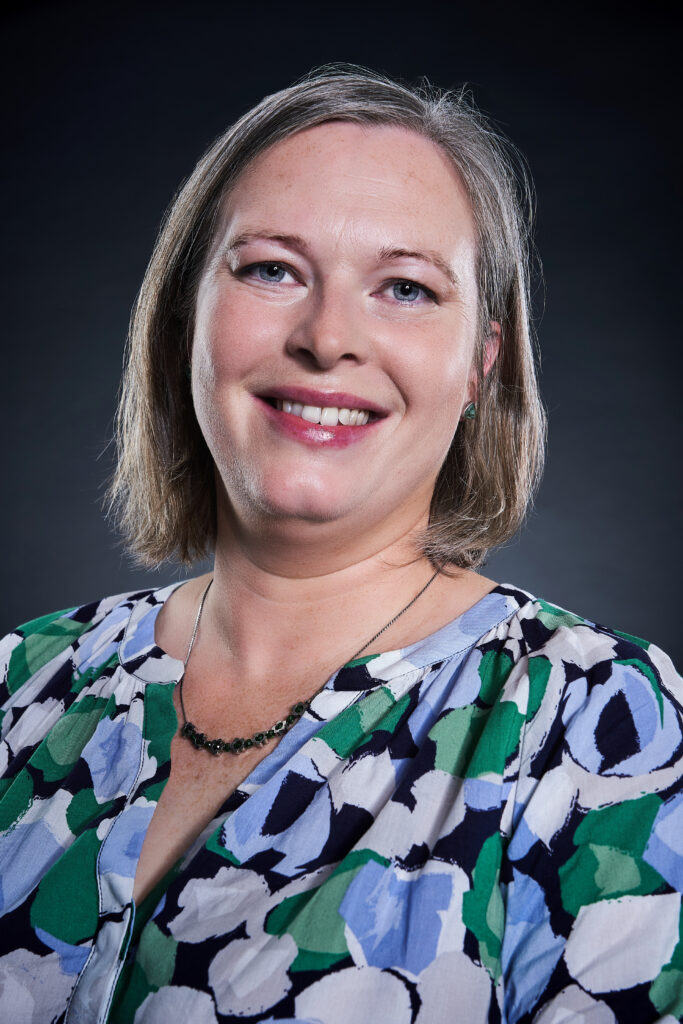In the shadow of the subjunctive – a portrait of Dr. Valerie Lang

It all started with a cup of tea. When Dr Valerie Lang was still a high school student, she had a physics teacher who opened every lesson with a round of tea for the class. After all, „integrals are much easier to calculate with a warm sip of tea in your stomach“. Lang, who had always had an affinity for maths, began to look forward to her physics lessons more and more. When she realised the connection between maths and physics, she was hooked and her decision to study for a degree and then do a doctorate in physics came out of the (particle) cannon.
To explain her research to me, a complete layperson in physics, Valerie Lang starts with wave-particle duality; neither light nor matter is exclusively wave or particle. Lang still uses this realisation today in her research into tau leptons, which the physicist investigates in the Large Hadron Collider (LHC), a ring-shaped particle accelerator at CERN in Geneva. With her research, Lang wants to better understand dark matter, as its nature remains an absolute mystery and its particles have not yet been detected in a laboratory. In order to get to the bottom of the history of humanity’s origins, she shoots particles at each other and examines the collisions for phenomena such as those that occurred shortly after the „Big Bang“. She has watched large parts of the thematically appropriate US sitcom „The Big Bang Theory“ and professionally classifies it as „fairly well researched, if clearly exaggerated“.
The LHC has a circumference of an incredible 27 kilometres and is located 100 metres below the earth’s surface. The collider should actually have been completed at the end of 2008, but as Lang had not yet started her thesis at that time and would not have been able to use it, a magnet broke in order to guarantee that it could be put into operation in time for the start of her thesis – at least that is how Valerie Lang likes to see the situation. Although she is now employed as an academic councillor at the University of Freiburg, is well on the way to her habilitation and is able to analyse all the CERN data remotely from her home office, she still needs the occasional visit to Geneva. To compensate for processing huge amounts of data and planning the next collisions in the lab, Lang likes to go dancing; or, if that becomes too mundane for her, she sometimes travels to China and does a few karate exercises on the Great Wall. After all, she didn’t get her 2nd Dan (black belt) for nothing. As soon as she is drawn back to CERN, her enthusiasm for her profession is rekindled and her enthusiasm spreads to others. The great thing about physics, according to Valerie Lang, is that „at some point you get into areas that go beyond our understanding and are really at the limits of what I can even begin to imagine.“
As soon as Lang feels that she is getting too close to a better understanding of a physical problem, she takes a running jump to the next one, which once again pushes her to the limits of her imagination and logic. As a border crosser with heart and soul, she is passionate about not staying in her comfort zone and pushing the limits she knows far ahead of her, always in search of new unknowns. She leaves her comfort zone not only on an intellectual level, but also in her professional life; always with the thought: „Just because I have the impression that I can’t do it, I won’t let that stop me from doing it.“

With her background, Lang would probably not have directly applied for a job as a project manager in the field of hardware robotics, but with a little pressure from her boss at the time, Prof Ingrid Gregor, she was able to persuade herself to take on the project, guide her (almost exclusively male) team through the process more than confidently and learn a lot about connectors from her electrician colleagues along the way. The robot is still in operation today and is even the favourite of many in the laboratory.
Although there are significantly more women working in physics today, the field is still 70% male; as a woman, you immediately stand out. „If you fail, everyone notices, but if you’re good, everyone notices.“ It’s not always easy to shed your modesty with this knowledge in mind. Even for Valerie Lang, with her engaging manner, it is sometimes difficult not to succumb to impostor syndrome – with its self-doubt and the difficulty of attributing success to one’s own ability. She likes to give her applications, proposals and presentations to her colleagues for proofreading so that the number of subjunctives in the text is minimised. „That ‚would‘ not be an interesting project, that’s awesome!“ says Lang by way of example.
All too often, she sees women being too reserved in their demands or expectations or talking down their achievements. She has not yet experienced discrimination on the basis of her gender, but recognises that there should clearly be more female role models and women in long-term management positions in physics. In her working group on the ATLAS (A Toroidal LHC Apparatus) experiment, one of the four really big ones at CERN, there are now several women who have something to say. When she talks about this, she suddenly grins mischievously and tells me a bit more about her role: „And then you sit there in this control room [at the LHC] and tell them what to do with the particle beams. I think that’s pretty cool.“ So it is definitely possible to be successful as a woman in physics. Valerie Lang describes this as proof by reality and it is by no means trivial.
Portrait by Leah Bohr
Leah Bohr completed her Bachelor’s degree in English Studies and Cognitive Science at the University of Freiburg and is now getting her Master’s degree in Cognitive Science in Tübingen. When she’s not working or programming, you can find her in the gym or outside on her pink bike. Despite her workaholic tendencies, she knows how to enjoy relaxing eveningd on the balcony with home-grown tomatoes. She owes her Spanish skills largely to anime subtitles.